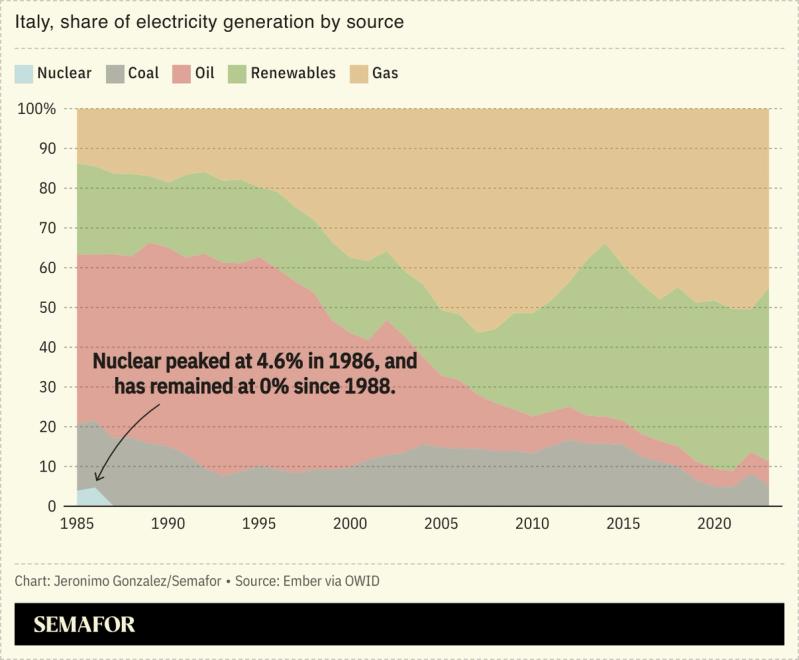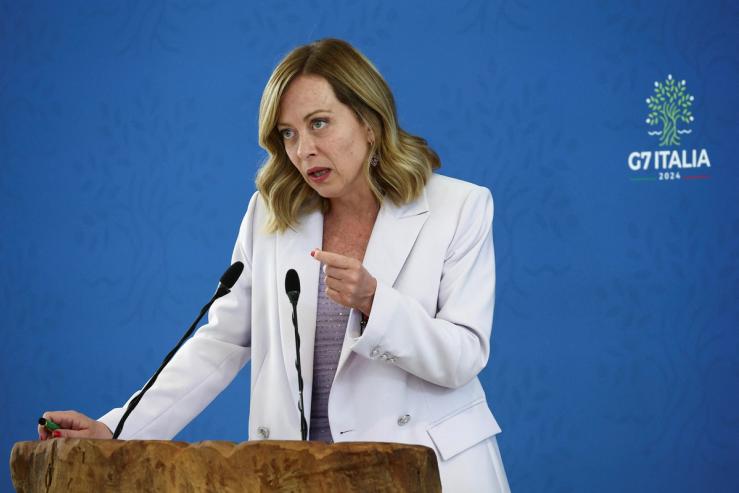The News
Italian Prime Minister Giorgia Meloni plans to restart Italy’s nuclear energy industry, 35 years after the country closed its last reactor.
Italy’s energy minister told the Financial Times that the government would introduce legislation to support investment in small modular reactors, which could be operational within 10 years. He said that nuclear energy could make up at least 11% of the country’s electricity mix by 2050 as it works to reduce reliance on fossil fuels.
Nuclear power is becoming increasingly popular worldwide as a form of cleaner energy compared to fossil fuels, but it’s still divisive, and concerns about nuclear waste storage, renewability, and safety remain.

SIGNALS
Nuclear is growing in popularity as a green source worldwide…
As the world moves to phase out fossil fuels, nuclear power is gaining ground: More than 20 countries plan to triple nuclear capacity by midcentury, and uranium prices are up 50% year-on-year. Nuclear power produces “consistent carbon-free” energy that is also safe, Grist wrote. In Italy, concerns about energy security since Russia’s invasion of Ukraine have pushed the government to reconsider nuclear power, Bloomberg wrote. Energy minister Pichetto Fratin told the Financial Times he was confident that Italians’ historic “aversion” could be overcome, as nuclear technology now has “different levels of safety and benefits families and businesses.”
…But it’s still divisive
Nuclear energy remains a controversial form of green power generation. In the US, concerns about waste storage and safety, particularly after the 1979 Pennsylvania reactor meltdown, helped spur the retirement of nuclear power plants. In Italy, safety is also top of mind: The Chernobyl tragedy of 1986 was the trigger for it to cease nuclear production in the first place, and the 2011 Fukushima disaster reignited those concerns. As of April, only 51% of Italians approved of nuclear power, according to polls shared by Il Sole 24 Ore.
The move toward small nuclear reactors may go nowhere
The plan to introduce small modular reactors in Italy could add to the country’s history of failure in nuclear energy, a former Italian lawmaker and researcher argued in Italian outlet Il Fatto Quotidiano, writing that these reactors are expensive and produce too little energy to justify an investment in them.They could also become obsolete within the next decade, the timeline for the government to introduce them, Italian outlet Domani added, and be overtaken by nuclear fusion reactors, which are more efficient and have “virtually no environmental impact.” Italy’s main oil company, Eni, has signed a deal with MIT spinout Commonwealth Fusion System, with the goal of providing the first operational nuclear fusion plant by 2030.


